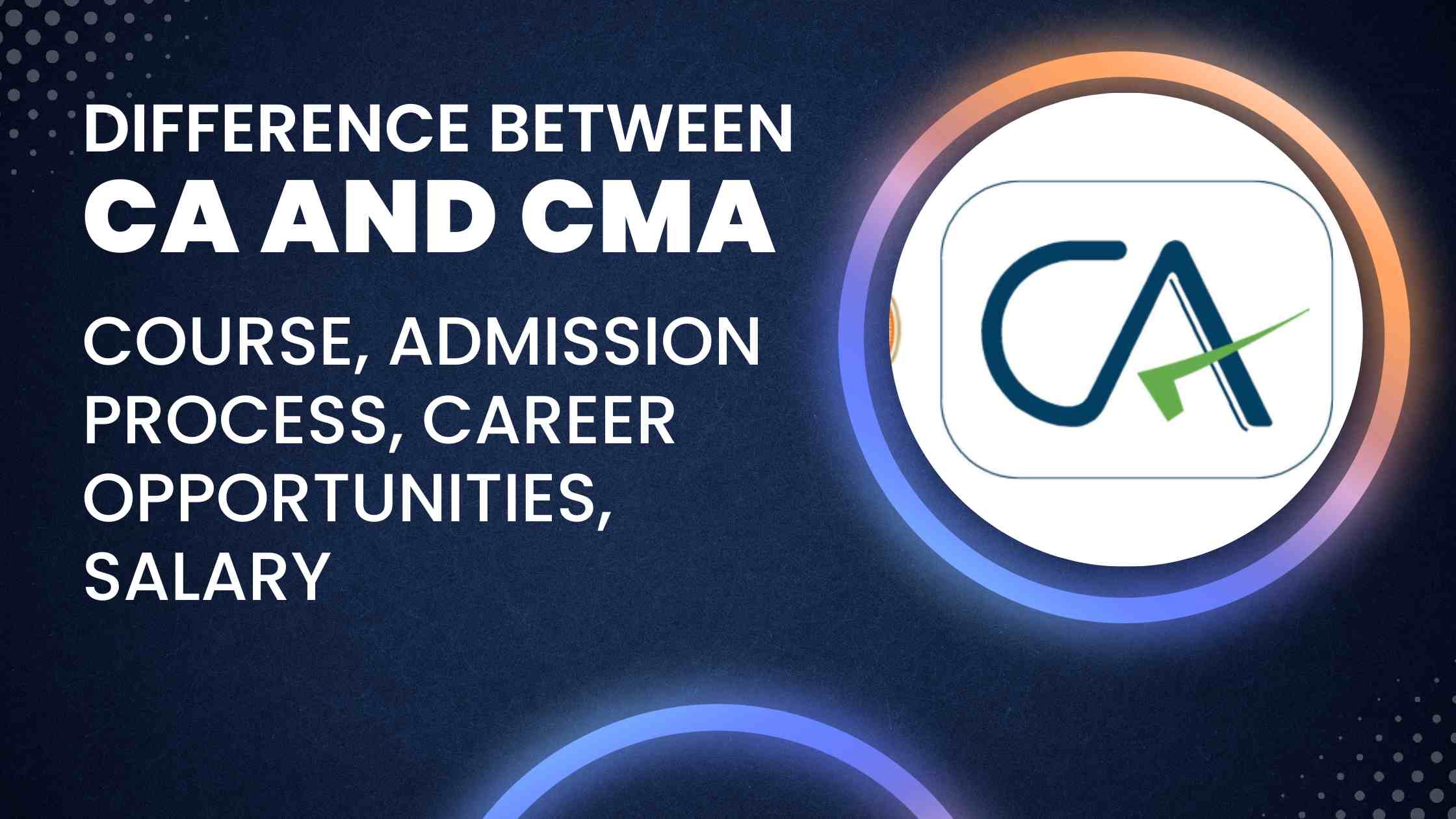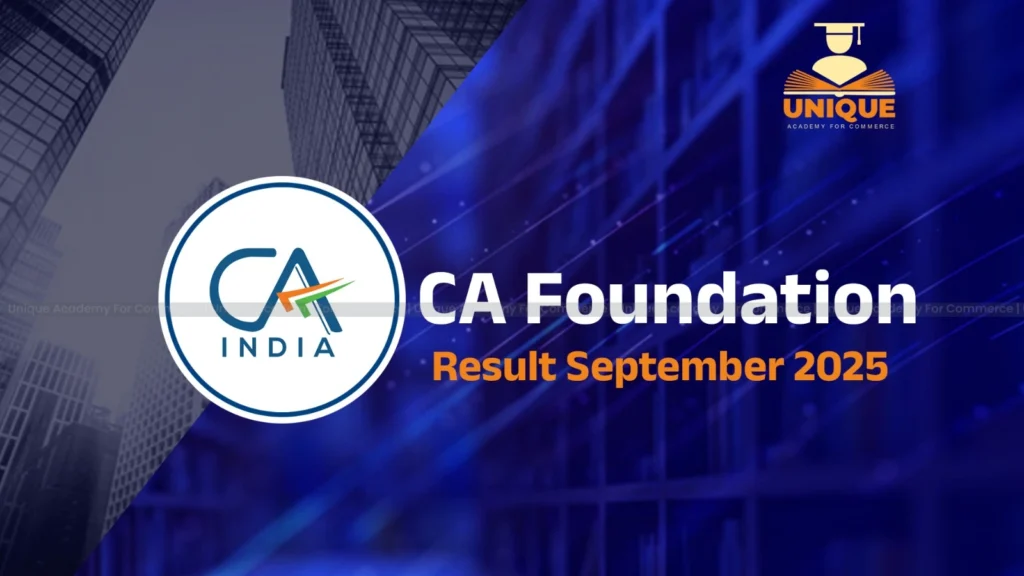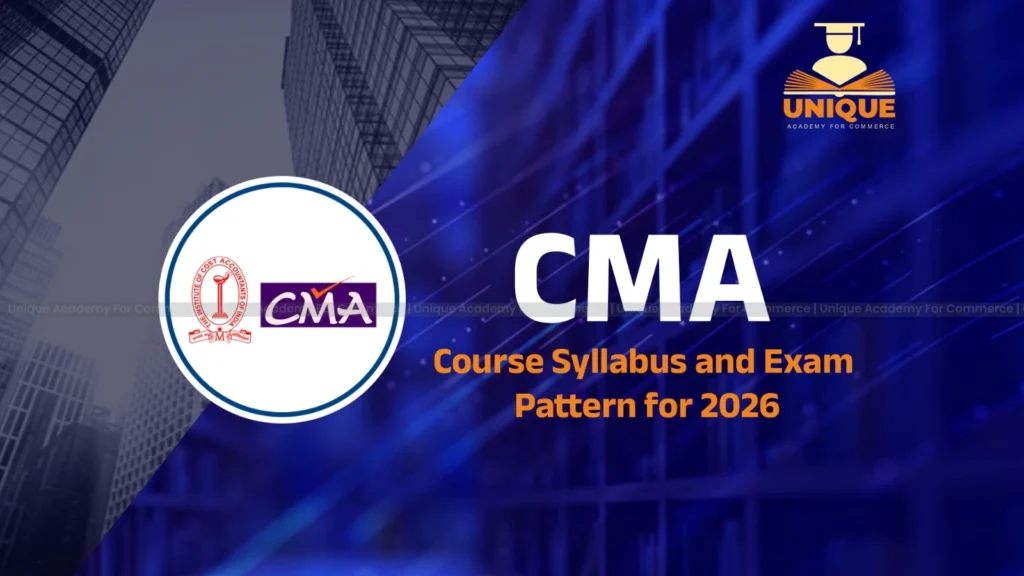Difference Between CA and CMA – Course, Admission Process, Career Opportunities, Salary

Chartered Accountant (CA) vs. Cost and Management Accountant (CMA): Choosing the Right Path.
Both Chartered Accountants (CAs) and Cost and Management Accountants (CMAs) are highly sought-after professionals in the financial world. However, they cater to distinct aspects of accounting and offer different career paths.
This article delves into the key differences between CA and CMA, including course structure, admission process, career opportunities, and salary expectations, to help you decide which path aligns best with your goals.
Course Structure and Focus
Chartered Accountant (CA):
Offered by the Institute of Chartered Accountants of India (ICAI) [ICAI], the CA course is a rigorous program encompassing a wide range of financial disciplines.
It covers accounting principles, auditing, taxation (direct and indirect), corporate law, financial management, and costing. The course emphasizes developing a well-rounded understanding of financial statements, conducting statutory audits, and providing financial advice.
Cost and Management Accountant (CMA):
Administered by the Institute of Cost Accountants of India (ICMAI) [ICMAI], the CMA course focuses primarily on cost management, cost accounting, and financial analysis.
It equips individuals with expertise in budgeting, cost control, performance evaluation, and strategic decision-making.
The curriculum includes subjects like cost accounting, financial accounting, management accounting, economics, and business communication.
Admission Process
- CA: To pursue CA, students must clear the CA Foundation exam conducted by ICAI after Class 12. Upon passing, they can enrol in the Intermediate level followed by the Final level. The course also mandates three years of articleship training under a practising CA.
- CMA: The CMA course is open to graduates from any stream. The program involves three levels: Foundation, Intermediate, and Final. Each level has its own set of exams.
Career Opportunities
- CA: CAs have a wider range of career options due to their comprehensive skillset. They can work in public practice (auditing and taxation), corporate finance (financial analysis, risk management), investment banking, consulting, and even establish their own practice.
- CMA: CMAs are specialists in cost management and find opportunities in various industries like manufacturing, production, consulting, and service sectors. They can work in roles like cost accountant, management accountant, financial analyst, internal auditor, and cost controller.
Salary
- CA: On average, a freshly qualified CA in India can expect a initial package of around ₹8-9 lakhs per annum. With experience and expertise, this figure can significantly increase, reaching over ₹25 lakhs for top performers.
- CMA: The average starting salary for a CMA is around ₹5-6 lakhs per annum. Similar to CAs, their earning potential grows with experience and specialization, reaching up to ₹7-8 lakhs or even higher depending on the industry and skillset.
Choosing the Right Path
The ideal choice between CA and CMA depends on your career aspirations and personal strengths. Here’s a breakdown to help you decide:
- Pursue CA if: You enjoy a broad range of financial topics, including auditing, taxation, and corporate law. You are comfortable with a challenging academic program and a long-term commitment. You aim for a versatile career with leadership opportunities in finance.
- Pursue CMA if: You have a strong interest in cost management, budgeting, and financial analysis. You prefer a more specialized course with a shorter duration. You are drawn to roles focused on optimizing costs and internal financial processes.
ICAI CA May 2024: Inter, Final Exam Dates Expected To Be Rescheduled?
Old Syllabus CS Executive Preparation Strategy 2024, Subject-Specific Strategies
Final thoughts:
Both CA and CMA are prestigious qualifications that open doors to rewarding careers in finance. By understanding the key differences in their course structure, career paths, and salary potential, you can make an informed decision that aligns with your interests and long-term goals.
















